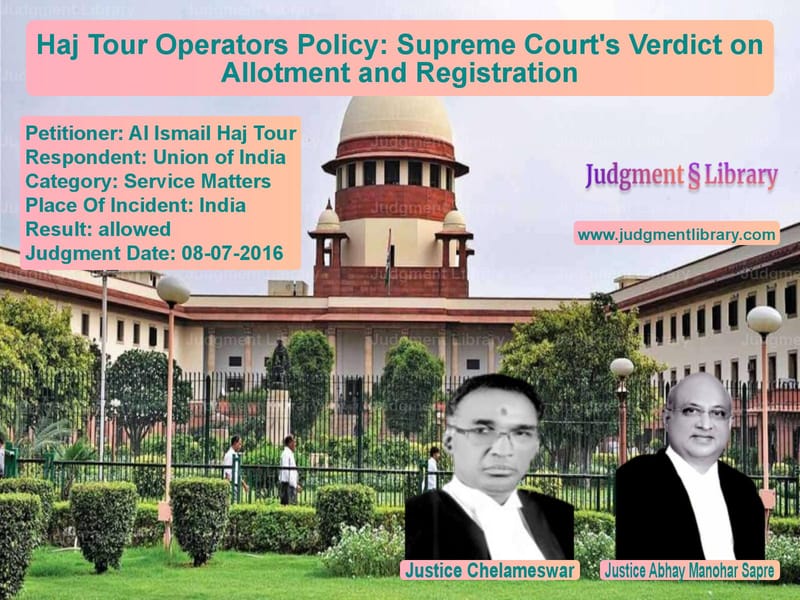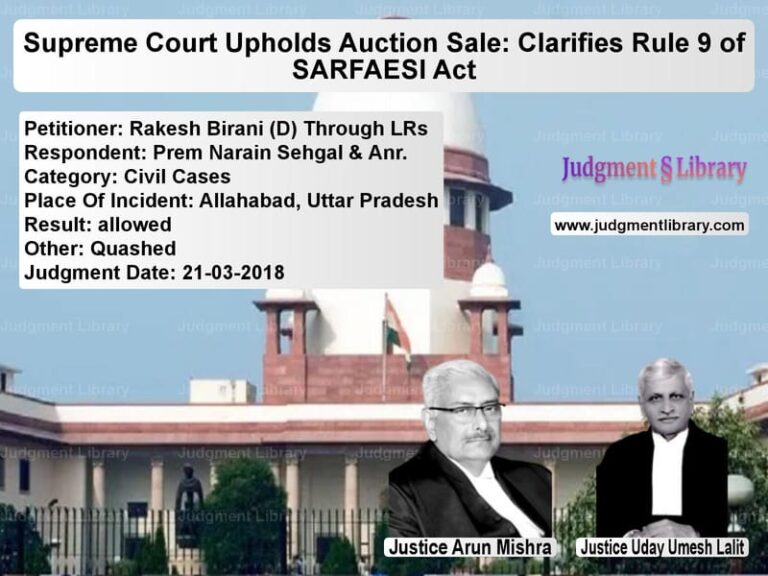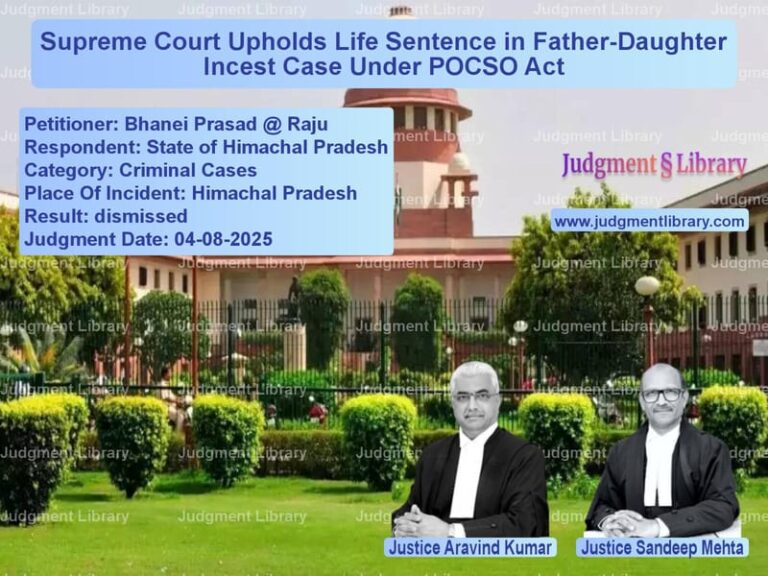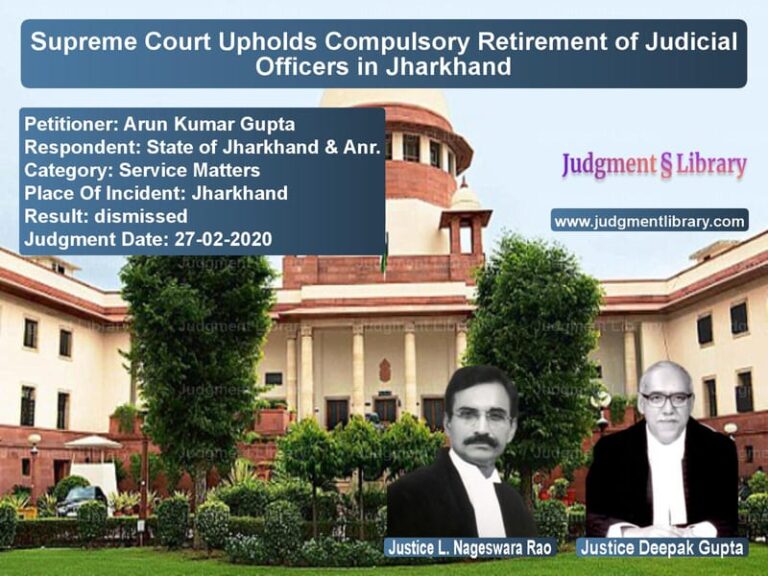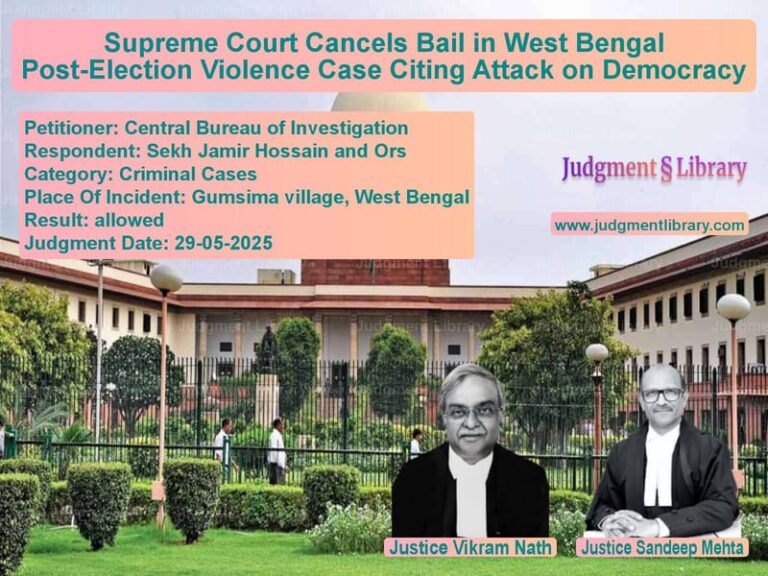Haj Tour Operators Policy: Supreme Court’s Verdict on Allotment and Registration
The Supreme Court of India in a landmark ruling on the registration and allotment of quotas for Private Tour Operators (PTOs) in Haj pilgrimages has provided clarity on the issue that has been a matter of legal contestation for years.
Background of the Case
Several writ petitions were filed by various PTOs challenging the Government of India’s policies regarding their eligibility and registration for conducting Haj tours. The primary petition in this case was filed by Al Ismail Haj Tour against the Union of India, along with multiple other writ petitions filed under Civil Original Jurisdiction.
Government’s Policy and Legal Dispute
The dispute arose after the Government of India formulated a policy for the registration of PTOs for the years 2013-2017. The policy classified PTOs into two categories: Category-I included those who had conducted Haj tours for at least seven years, while Category-II comprised those with less experience but had facilitated Umrah tours.
The Supreme Court in an earlier judgment in Union of India v. Rafique Shaikh Bhikan (2013) had approved the policy, stating that it prevents monopolization and ensures the entry of fresh players. However, the Government of India’s additional conditions, particularly regarding the financial requirements and mandatory documentation for past operations, were challenged by the PTOs.
Petitioners’ Arguments
The PTOs contended that the conditions imposed by the government were arbitrary and created an unfair disadvantage for many operators. Specifically, they challenged:
- The requirement to provide proof of financial transactions for prior years when they were not allotted quotas.
- The mandatory requirement of a turnover of INR 1 crore.
- The insistence on evidence of payments made through banking channels.
The petitioners argued that such conditions were not present in the original policy approved by the Supreme Court and were added later through administrative orders.
Respondent’s Arguments
The Union of India, represented by the Additional Solicitor General, defended the conditions, arguing that they were essential to ensuring that only credible and financially stable PTOs were permitted to operate. The government maintained that the requirement for past financial records was necessary to verify the credibility of operators.
The respondent also highlighted the importance of protecting the interests of pilgrims, ensuring that only established PTOs with a proven track record were granted quotas.
Supreme Court’s Ruling
The Supreme Court delivered a detailed judgment addressing various contentions raised by the parties. Some key aspects of the judgment include:
- Validity of the Government Policy: The court upheld the broad framework of the government’s policy but struck down specific conditions that were found to be unreasonable.
- Financial Requirements: The court ruled that requiring PTOs to furnish documents proving financial transactions for years they were not allotted quotas was unjust and directed the government to amend this provision.
- Registration Criteria: The Supreme Court stated that once a PTO has been registered under a particular category, they should not be required to requalify every year unless disqualified for valid reasons.
- Government Oversight: The court recognized the government’s role in ensuring the credibility of PTOs but emphasized that arbitrary conditions should not be imposed that disadvantage smaller operators.
The judgment also directed the government to adopt a fair and transparent mechanism for allotment of quotas in subsequent years.
Implications of the Judgment
The Supreme Court’s decision provides relief to smaller PTOs who faced exclusion due to rigid documentation requirements. It ensures a level playing field while still maintaining necessary checks on the credibility of operators. The judgment also upholds the government’s responsibility to regulate the sector while preventing arbitrary exclusions.
Moving forward, the government is expected to revise its policies in line with the Supreme Court’s directions to make the registration and allocation process more equitable and transparent.
Don’t miss out on the full details! Download the complete judgment in PDF format below and gain valuable insights instantly!
Download Judgment: Al Ismail Haj Tour vs Union of India Supreme Court of India Judgment Dated 08-07-2016-1741873146196.pdf
Direct Downlaod Judgment: Direct downlaod this Judgment
See all petitions in Recruitment Policies
See all petitions in Public Sector Employees
See all petitions in Judgment by J. Chelameswar
See all petitions in Judgment by Abhay Manohar Sapre
See all petitions in allowed
See all petitions in supreme court of India judgments July 2016
See all petitions in 2016 judgments
See all posts in Service Matters Category
See all allowed petitions in Service Matters Category
See all Dismissed petitions in Service Matters Category
See all partially allowed petitions in Service Matters Category

